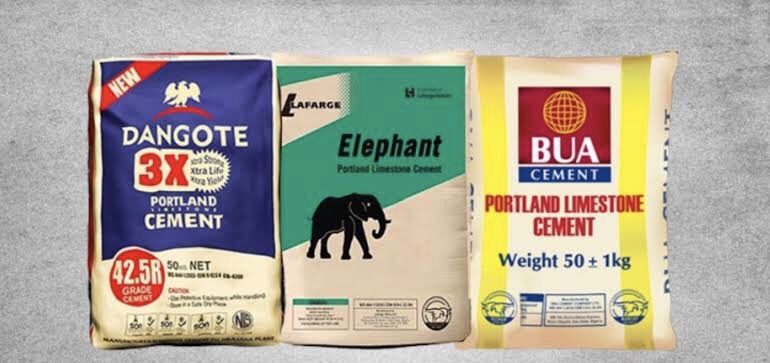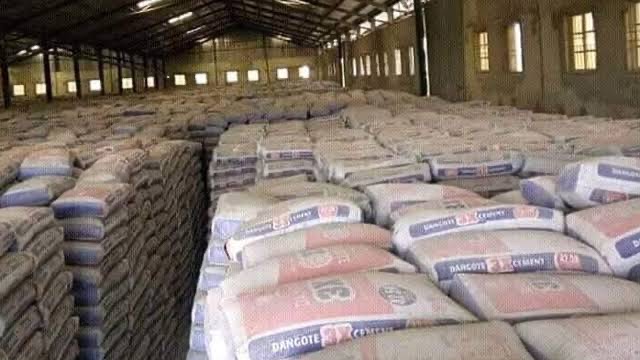A look at the prices of major cement traders shows that they have remained stable for the past four months following government and National Assembly intervention.
The price of a cement bag (50kg) ranges from N7,500 to N8,200. Halimat, a major cement distributor in Ikorodu, said of the price of the product: “Now, we sell Elephant cement at N8,200 per bag and that’s the price for like two to three months now. No big difference between the price for Dangote and Elephant Cement for some time. I think it’s because of government intervention and the rainy season. Normally, demand is low during the rainy season as most construction work stops.”
Typically, demand is low during the rainy season as most construction work comes to a halt. He said prices are stable for now but expects prices to rise once the dry season arrives and construction picks up again.
He said, “The drop in demand does not only affect cement but building materials in general but as construction works begin from maybe October or November, we’ll begin to see prices increases- that is how the market usually works but the one early this year was shocking and unexpected. I have been in this business for almost 20 years and I’ve not seen such a quick increase in cement prices. We have learnt now.”
However, another cement distributor, Mr. Enuwa, refuted the statement that the drop in cement demand was due to the rainy season.

According to him, the drop in demand was due to rising prices, which became unaffordable for the average citizen to take on large projects.
He said, “N8,000 for 50kg of cement is not cheap and that is not a stable price. How many people can build a house or any project at that price? We were selling cement around N5000 per bag this time last year and it increased to around N12,000 but dropping to the current price, that is not stable.”
He explained that the high price of cement could discourage builders from investing.
Commenting on the cement price forecast for the dry season, a Dangote Group official who preferred to remain anonymous said there was no reason to believe the opinion of cement traders on the price rise forecast.
He said prices depend on a variety of factors, not just demand, and it is difficult to predict price increases with any certainty.
According to him, “What the distributors are telling you is what they think. It doesn’t mean it will happen. I cannot say for certain what will happen to cement prices when the dry season comes. It depends on different factors, and we have no control over some.”
In February 2024, Journalists reported that the price of cement had risen from about 5,000 naira to over 10,000 naira per 50kg bag, sending waves of panic across the country and the construction industry.
It was only the intervention of the Federal Government, following consultations with the Federal Government led by the Minister of Public Works, Senator David Umahi, that restrained manufacturers’ struggle to bring the price down to 8,000 naira.

Before the price hike, analysts at Cardinal Stone had expected cement prices to remain high in 2024 due to high inflation, volatility in the foreign exchange market, and high operating costs.
Nigerian companies have not been able to do good business in the foreign exchange market in 2024. The naira traded below 1000 naira/dollar since the start of the year and ended the first quarter at 1309 naira/dollar, but traded at a high of 1600 naira at the official window during the quarter.
The Cardinal report then lowered the possibility of a price war among industry players in response to BUA’s price cut in October 2023, noting that the price cut is slight but not impossible.
It is worth knowing that in October 2023, the Chairman of BUA Group, Abdulsamad Rabiu said his cement company would set the cement price at 3,500 naira. The statement turned out to be mere lip service as neither developers nor traders could buy at that price. As the cement dealer Enuwa previously pointed out, high cement prices could deter developers from embarking on new projects.
An earlier report found that a 130% increase in the cost of construction materials has stalled house construction across the country. Property developers have been hit the hardest due to job cuts.
Moreover, the rise in the cost of construction materials such as cement is also adversely affecting the real estate sector as developers face losses due to the unprecedented rise in the cost of construction materials affecting the entire property development sector.


































